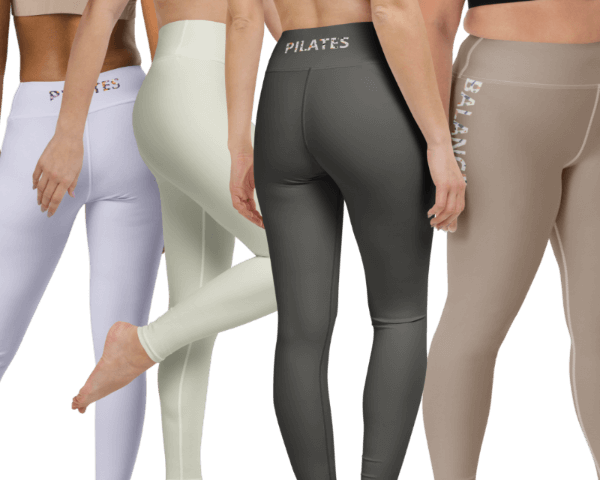Sugar, Spice and Everything Nice...with Free Shipping over $75!
Sugar, Spice and Everything Nice...with Free Shipping over $75!

5 Reasons Why You’re Not Loosing Weight-Revive Wear Blog
4 min read
Lose Weight: 5 Simple Tips
What will you learn by reading our blog?
- Reasons why you may not be losing weight.
- How to adjust your calorie intake for optimal results.
- Why you should incorporate weight lifting as part of your routine.
- Find out how alcohol affects your nutrition.
- Why protein is important and how much to consume.
Intake of too many calories
It is not possible to lose weight without a negative energy balance. You either need to eat fewer calories, exercise, or both.
The optimal nutrition plan to treat obesity should be safe, nutritious, culturally acceptable, and affordable, to ensure long-term compliance. You should enjoy your meals, so choose nutrition based on your food likes instead of following diet fads.
Try restricting your calorie intake to 10% then review. If you reduce your calorie intake too far, then this will have a negative effect on your muscle mass and strength. Try this calculator for safe weight loss.
https://www.healthstatus.com/calculate/calories-to-lose-weight
Not lifting weights
Exercise is an important adjunct for weight loss. Lifting weights prevents loss of muscle mass, enhances the burning of more calories and it deters hunger. Other important benefits of lifting weights involve bone density, and balance, and may help in controlling joint and muscle pain.
If you've been working hard at the gym, but not seeing the results you want, it's time to look at your exercise routine.
It's likely that you're focusing too much on cardio and not enough on strength training. Cardio is great for your overall health, but it's not the best way to lose weight.

Strength training is the key to burning fat and building muscle. When you lift weights, you're actually breaking down muscle tissue. Your body then repairs that tissue over the next few days, and as it does, it becomes stronger and more toned. So, if you're not seeing the results you want, it's time to add some weightlifting into your routine.
Women's Fat Loss Exercise Program
Alcohol intake
Alcohol contains empty calories, meaning they do not have any nutritional value.
The liver will process the alcohol before metabolizing nutrition, leaving your body with impairment of absorbing nutrients. Excessive glucose and lipids will end up as adipose tissue.
This does not necessarily mean you cannot enjoy your glass of red but limit the occasions otherwise, this will set back your weight loss.
Not drinking enough water
Being well hydrated prevents overeating, fights illnesses, is essential for bodily function, prevents kidney damage, lubricates joints, gets rid of toxins, provides clearer thought processes, enhances healthy skin, moistens the mouth, and may prevent tooth decay, and may enhance exercise performance. There are various fluid intake calculators available.
For most, daily fluid intake is measured on your weight, height, and activity level.
https://www.gigacalculator.com/calculators/water-intake-calculator.php
Not eating enough protein
Protein aids in boosting the metabolism, reduces cravings, preserves muscle mass, and builds and repairs tissues, hair, skin, enzymes, and hormones. Protein requirements will depend on your fitness level, age, height, and weight.
Try to choose low-fat protein sources and monitor the serving size. Use the palm of your hand to estimate your protein needs for each meal.
Nutritious protein food list by https://www.bodybuilding.com/content/ultimate-list-40-high-protein-foods.html
You Think You're Eating Less Than You Actually Are
One of the most common reasons people can't seem to lose weight is because they think they're eating less than they actually are.
I'm sure you're familiar with the saying, "the devil is in the details." Well, the same thing can be said for dieting. It's easy to underestimate how much we're eating when we're not tracking our food in detail.
In fact, a study published in The American Journal of Clinical Nutrition showed that people who dieted thought they were eating around 1,000 calories per day, but when researchers measured their intake, they were actually eating 2,000 calories per day.
The takeaway? If you're not losing weight, take a closer look at your diet and make sure you're accurately tracking your food intake.
You're Eating Late at Night
Eating late at night can sabotage your weight loss goals. When you eat closer to bedtime, your body doesn't have enough time to burn off the calories before you hit the hay. This can cause your body to store the excess calories as fat, making it harder to lose weight.
If you're struggling to lose weight, try avoiding food after dinner and allow yourself at least two hours before bedtime to eat. This will give your body enough time to burn off the calories and help you reach your goals.
Conclusion
It's not always easy to lose weight. In fact, for some people, it can feel downright impossible. If you're struggling to lose weight, it may be due to one (or more) of the following reasons: You're not eating enough. You're eating the wrong things. You're not getting enough exercise. You're stressed out. You have a hormonal imbalance. If you can identify the reason (or reasons) why you're having difficulty losing weight, you can take steps to address the problem and finally start seeing results.
❤Thank you for reading our blog.
Feel free to comment and leave your thoughts.
Brazier, Y. Gunnar’s, K. Pendrick, D Harvard Health Blog.
Edward et al. Med. Sci. Sports. Exerc. 2017 49(1).
Photo by RODNAE Productions from Pexels
https://www.muscleandstrength.com/workouts/muscle-and-strength-womens-fat-loss-workout
Leave a comment
Comments will be approved before showing up.
Also in Sports Wear Blogs

Yoga vs Pilates: Which is Best for Flexibility & Toning
8 min read 1 Comment
This article provides a detailed guide of Pilates and Yoga, specifically tailored for busy mothers aiming to enhance their physical and mental wellbeing. It distills the choice between the two disciplines into a clear, goal-oriented framework.
Key points are as follows:
-
Core Strength & Postpartum Recovery: Pilates is positioned as the superior modality for targeted core rehabilitation. Its precise focus on the deep abdominal muscles and pelvic floor makes it exceptionally effective for postpartum recovery, improving posture, and building the functional strength required for the physical demands of motherhood.
-
Flexibility & Stress Management: Yoga is identified as the more potent practice for increasing overall flexibility and providing profound stress relief. Its integration of mindfulness, breathwork (pranayama), and meditation offers a direct path to calming the nervous system and achieving mental clarity amidst the chaos of family life.
-
Toning vs. Functional Strength: While both practices build strength, Pilates offers more direct and targeted muscle toning, particularly in the core. Yoga excels at developing holistic, functional strength and muscular endurance through full-body engagement.
-
The Mind-Body Connection: The article differentiates the mental benefits: Pilates quiets the mind through intense physical concentration, while Yoga achieves this through a more meditative and spiritual approach.
Conclusion: The post concludes that neither practice is categorically "better." The optimal choice is dependent on the individual's primary goal. It recommends Pilates for mothers prioritising foundational strength and targeted toning, and Yoga for those seeking flexibility and mental calm. For a comprehensive approach, the article advocates for a synergistic routine that incorporates both disciplines to achieve a balanced state of physical strength and mental wellbeing.

Does Collagen Correct The Signs Of Ageing?-Revive Wear Blog
10 min read
Can collagen correct the signs of ageing skin? Here we explore the loss of collagen as we age and are subjected to extrinsic and intrinsic risk factors that increase the presence of ageing skin, along with clinical studies and reviews.
The loss of collagen as we age, results in the loss of skin moisture, elasticity and strength.
It is possible to delay the ageing skin by eating healthy, reducing stress, improving sleep, not smoking, protecting yourself from weather and drinking plenty of water.
Collagen is proven to increase skin density, folds, wrinkles and moisture in a small percentage of participants.
Taking collagen may not be effective for everyone’s skin type and condition.

How to Make Workouts Feel Easier Drinking Coffee
16 min read 1 Comment
Coffee has received numerous claims that it provides health benefits in maintaining energy levels, mental focus, and aids in weight loss by appetite suppression.
In our blog we discuss:
- How Coffee can improve your speed and performance.
- How to stay focused and increase your energy levels.
- Find out if coffee really does burn fat.
- What role does coffee play in reducing post exercise muscle soreness?
- What is the best time to consume coffee prior to working out?
- Potential risks and side effect of coffee and what can you do to minimize these effects.
Recent Articles
- Yoga vs Pilates: Which is Best for Flexibility & Toning
- Does Collagen Correct The Signs Of Ageing?-Revive Wear Blog
- How to Make Workouts Feel Easier Drinking Coffee
- The Surprising Benefits and Dangers of Apple Cider Vinegar
- 3 Easy Healthy Recipes to Live a Better Life
- Common Issues Women Have About Workout Clothing
- The Ultimate Guide to Treadmill Workouts and How to Get the Most Out of Them
- Beginner Strength Training for Women
- Top Tips On How To Build Your Fun Circuit Routine
- 5 Reasons Why You’re Not Loosing Weight-Revive Wear Blog
About Revive Wear
We get it—you're juggling work, kids, and trying to squeeze in a workout somewhere between school drop-offs and bedtime. That's exactly why Revive Wear exists.Melissa Green
Founded in 2018 in rural NSW, Revive Wear was born from my own struggle as a curvy mum trying to find activewear that was stylish, affordable, and actually fit real bodies. I knew other women in rural and remote areas were facing the same challenge, so I created the solution we all needed.
Our activewear is designed for every body shape, because feeling confident shouldn't be a luxury. Plus, we're committed to sustainability—our Eco-Friendly Leggings are handcrafted from 74% recycled polyester, so you can feel good about what you're wearing inside and out.
Beyond just great high waist leggings, we're here to support your fitness journey. Through our blog, we share practical education on strength training, tips on choosing the right workout gear, and even how to style string bikinis with confidence. We're all about empowering you with the knowledge and tools to feel amazing, both in and out of the gym.
Whether you're hitting the gym, chasing toddlers, or finally getting that five minutes to yourself, Revive Wear has your back. Find activewear that meets your bold energy level.
Subscribe today with $10 Off + Mom Rewards
Subscribe and Save $10 off + Join our Revive Rewards

